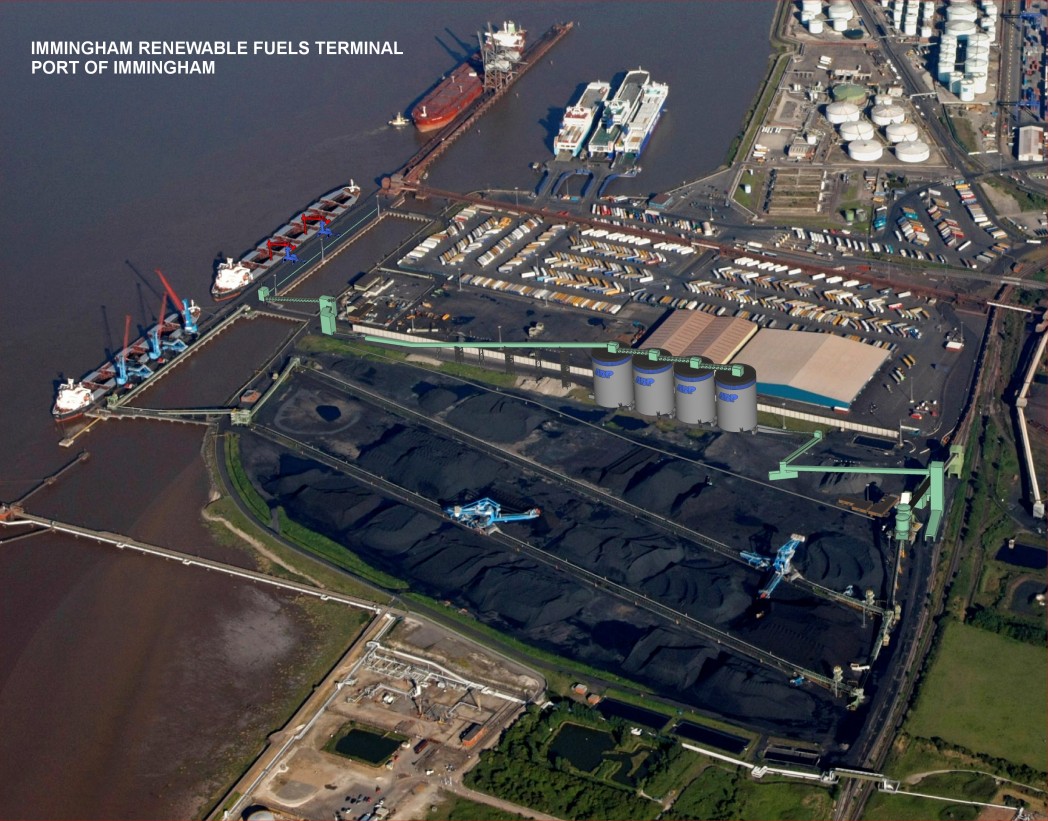Case study: Immingham Renewable Fuels Terminal (IRFT)
Background:-
When awarded, this was the largest ever contract won by HBPW and was to undertake the civil engineering design of Associated British Ports’ (ABP) Immingham Renewable Fuels Terminal (IRFT).
The Challenge
The aim was to create a multi-million pounds storage facility for wood pellets, imported from around the world, ahead of their onward transmission to UK power stations via rail. Drax Power Station near Selby in North Yorkshire – keen to drive its decarbonisation programme – was to be the principal beneficiary. Wood pellets are a by-product of the commercial forestry and saw-milling industry and are a sustainable low carbon fuel source. However, keeping them dry in the volatile UK climate became the critical challenge
Solution
Using the existing Humber International Terminal (HIT 1 Jetty), two new rail-mounted Continuous Ship Unloaders (CSUs) were designed to offload wood pellets from arriving vessels. The purpose-built CSUs can now discharge biomass pellets at a combined rate of 2400 tonnes per hour, using augers to lift them from ship holds. Sited on existing quay rails, they are able to traverse up and down the length of the quay discharging pellets onto a conveyor to their rear and, because the first discharge conveyor incorporates an intricate opening and closing top, rainwater is unable to enter the wood pellet area, preventing the threat of damage. From the quay, pellets travel by conveyor at a speed of approximately three metres per second, initially over a 65m single-span, enclosed conveyor bridge, to a transfer and sampling station, and then up to the top of four 25,000 tonne silos via enclosed conveyors. Wood pellets are then taken from the four storage silos, via reclaim conveyors, to a further concrete silo over the railway measuring 12.5 metres in diameter and 45 metres in height. At this point they will be discharged into specially built railway wagons for onward transmission to power stations.
Outcome
In transitioning from coal to sustainable biomass Drax, as one key recipient of wood pellets, has been able to reduce its CO2 footprint by some 12m tonnes per annum, the equivalent of removing 10% of cars from UK roads. All arriving wood pellets are transported to Drax by rail, ensuring there is no impact on the road network.

